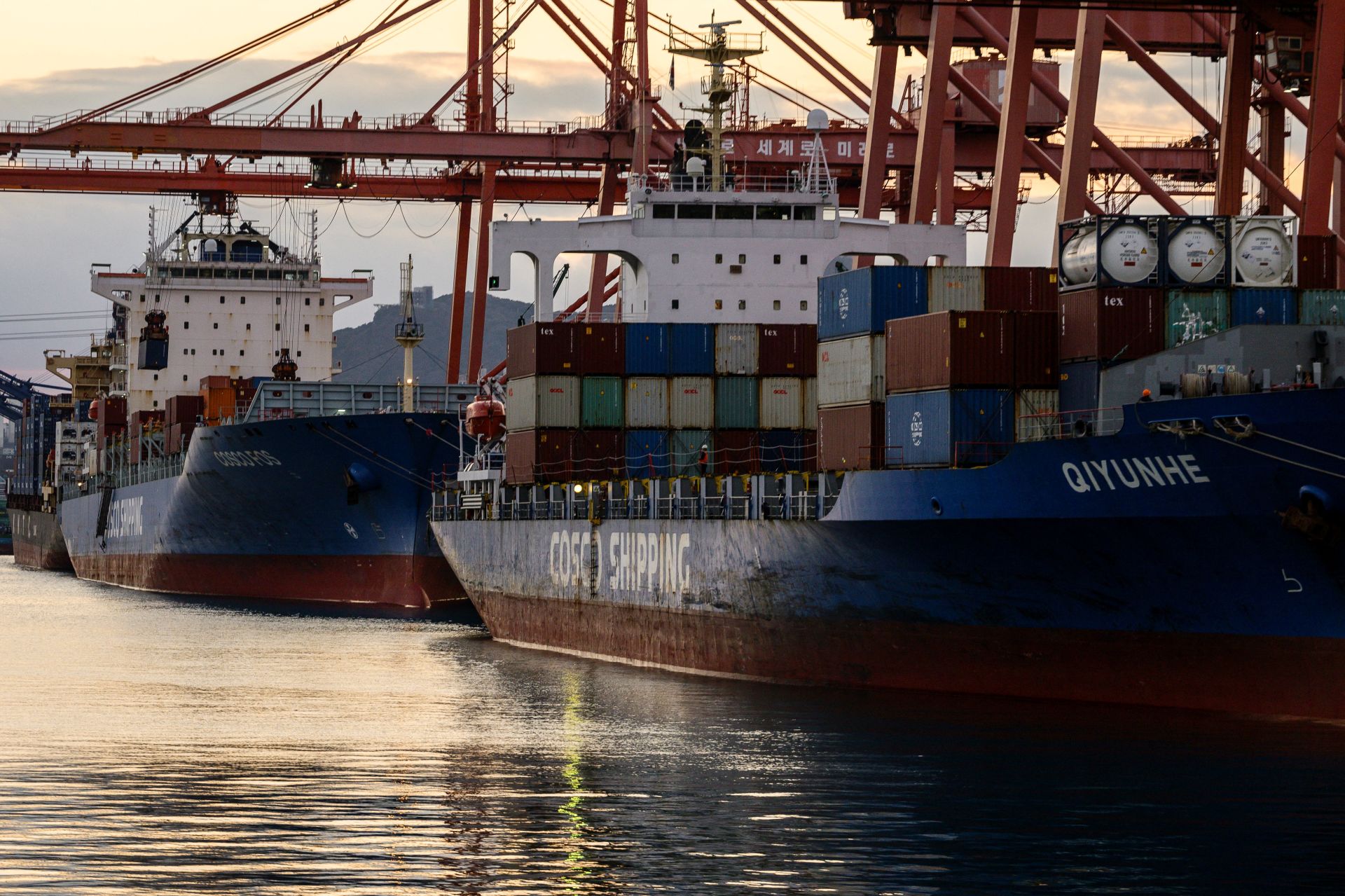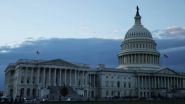- Home
- Middle East
- Trump Slaps Allies Japan, South Korea with 25% Tariffs

Containers are seen stacked up on berthed cargo vessels at a terminal in the southeastern port city of Busan on November 24, 2024. ©Anthony Wallace / AFP
US President Donald Trump said Monday he was slapping 25 percent tariffs on Japan and South Korea in his first letters to trading partners ahead of a deadline to reach a deal with Washington.
Trump had said at the weekend that starting from Monday he would send a first batch of up to 15 letters to countries informing them that he would reimpose harsh levies that he had postponed in April.
In near-identically worded letters to the Japanese and South Korean leaders, Trump said the tariffs would apply from August 1 because their trading relationships with Washington were, "unfortunately, far from Reciprocal."
Trump warned the countries, both key US allies in East Asia, of an escalation if they responded to the new US tariffs.
But he also said he was ready to modify levies "downwards" if Japan and South Korea changed their trade policies.
Japan's Prime Minister Shigeru Ishiba said Sunday that he "won't easily compromise" in trade talks with Washington.
Trump originally announced sweeping tariffs on world economies on what he called "Liberation Day" on April 2, claiming the United States was being "ripped off."
Amid market turmoil, Trump then suspended the initial tariffs for 90 days, a deadline that expires on Wednesday.
But the Trump administration has said that the duties will not "boomerang" back until August 1, apparently extending the deadline despite denials from officials.
While the Trump administration has signaled hopes of striking dozens of deals by early July, at one point boasting of "90 deals in 90 days," there have been limited results so far.
Washington has unveiled pacts with only Britain and Vietnam, while the United States and China agreed to temporarily lower tariff levels on each other's products that earlier reached three digits.
'Change Their Tune'
Treasury Secretary Scott Bessent said there would be a number of deals coming up.
"We are going to have several announcements in the next 48 hours," Bessent told CNBC in an interview Monday.
"We've had a lot of people change their tune in terms of negotiations. So my mailbox was full last night with a lot of new ofoffers and lot of new proposals," Bessent said.
There was no immediate response from the White House on whether Trump would formally extend the Wednesday deadline for the tariffs to snap back.
Asked about Trump's letters, Bessent said these would inform partners of the tariff rate their products face when trading with the United States, unless they want to "come back and try to negotiate."
Bessent told CNBC Monday that he would "be meeting with my Chinese counterpart sometime in the next couple of weeks."
The two sides have so far held high-level talks in Geneva and London.
But Washington and Beijing's pause on tit-for-tat tariffs is due to expire in mid-August.
On whether he was disappointed in the number of trade deals achieved so far, Trump's trade adviser Peter Navarro maintained that he is "happy with the progress we've had."
"Every country that we run a major deficit with is fully engaged," he told CNBC on Monday.
Trump has also threatened another 10 percent tariff on countries aligning themselves with the emerging BRICS nations, accusing them of "Anti-American policies" after they slammed his duties at a summit.
For now, partners are still rushing to avert Trump's tariffs altogether.
The European Commission said that EU chief Ursula von der Leyen had a "good exchange" with Trump on trade when the pair spoke Sunday.
AFP
Read more



Comments